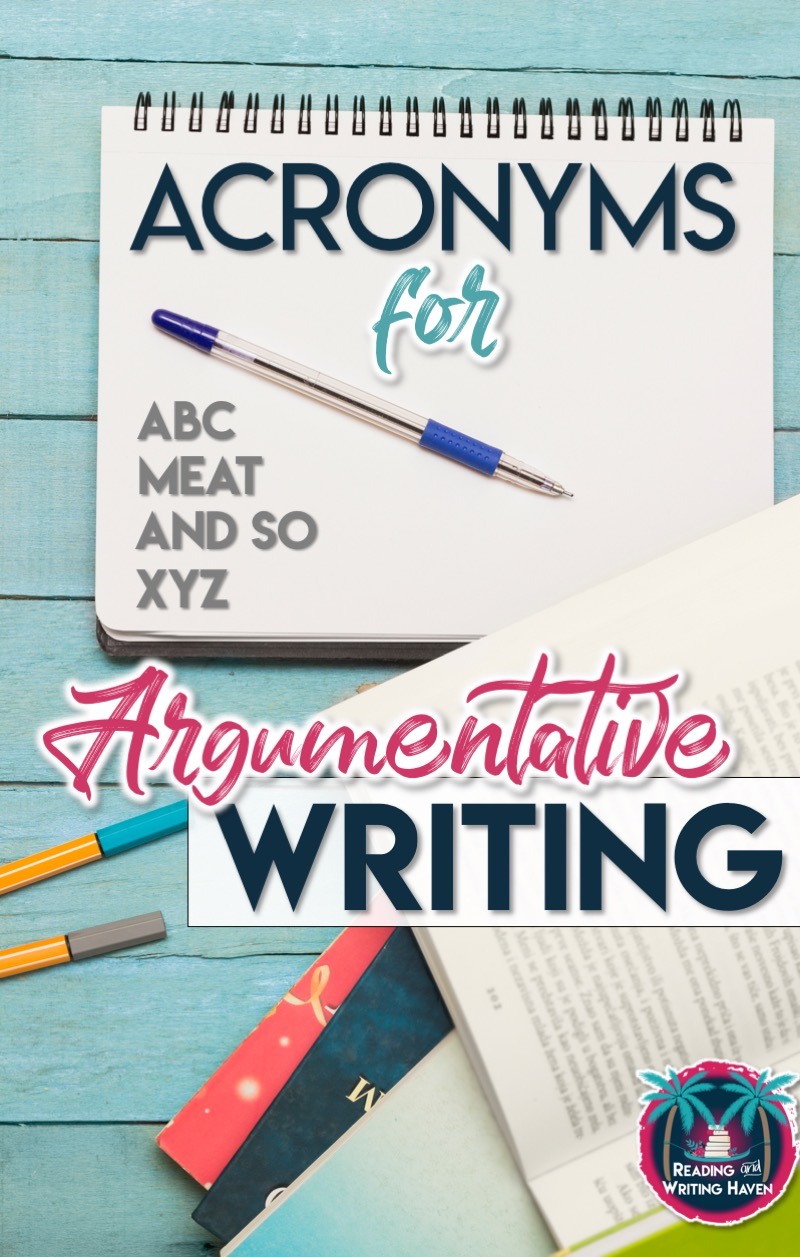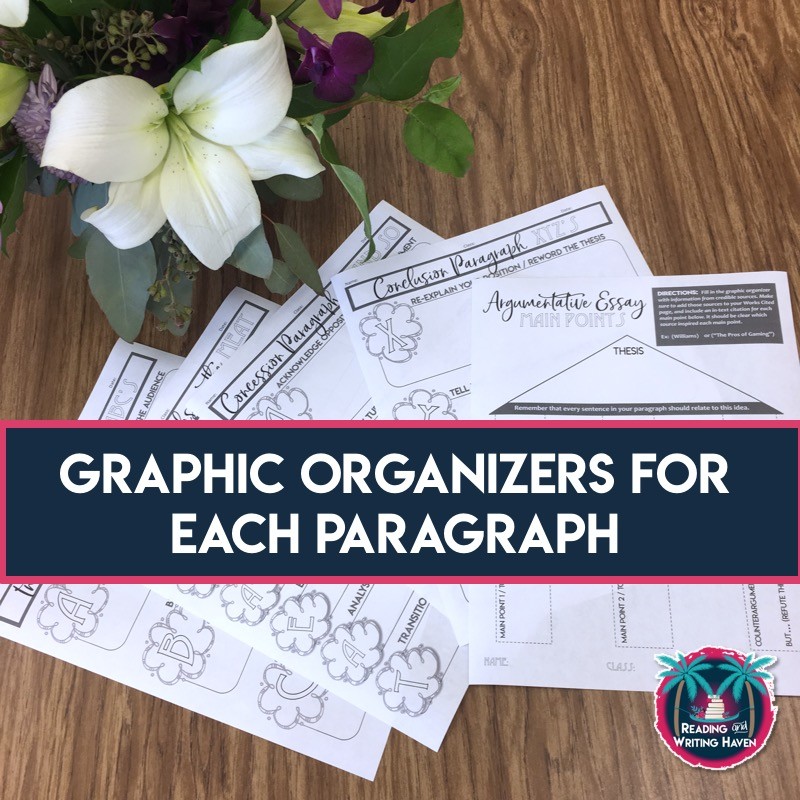Paragraph Acronyms for Argumentative Writing
Have your students ever looked at you like deer in headlights when you ask them to provide you with a baseline writing sample? Mine have. That’s why I wanted to come up with a catchy way for them to remember the essential elements of each paragraph in an argumentative essay. I don’t want them to feel helpless. They shouldn’t have to struggle to come up with more than one sentence for an introduction or conclusion. One of the scaffolding techniques I’ve found beneficial is creating acronyms for argumentative writing.
What follows are the mnemonic devices I created for each paragraph. I hope that they are memorable enough to stick with my students after they leave my classroom. Eventually, they won’t need this scaffolding. For now, it provides them with the confidence they need to understand how to write a well-developed paragraph.
Most of these acronyms can be used for other genres of writing as well, with the exception of the letter C in the introduction, perhaps.

INTRODUCTION PARAGRAPH ACRONYM
Because the introduction is the beginning of the essay, I refer to it as the ABC’s, which are the essential ingredients.
A – attention getter / hook
B – bridge / background
C – claim / thesis statement
If students are not writing an argumentative essay, “C” could stand for “clear thesis” instead of claim.
BODY PARAGRAPH ACRONYM
Since I use a hamburger or sandwich analogy when talking about body paragraphs, I use the acronym MEAT to describe the middle paragraphs in the essay. Without the meat, the sandwich would not be complete.
M – main point / topic sentence
E – evidence / research
A – analysis / elaboration
T – transition sentence
With this acronym, I explain to students that they will repeat their E + A at least twice in each body paragraph.
CONCESSION PARAGRAPH ACRONYM
Concession paragraphs can be tricky. Essentially, students are acknowledging a strong counterargument but then refuting it. After they identify a view that opposes their own, I ask them, “And so…?” What point are you trying to make by touching on this counterargument?
A – acknowledge opposition / counterargument
N – now turn back with a strong key word
D – defend your point of view with research
SO – so what is the point?
CONCLUSION PARAGRAPH ACRONYM
Just like we begin the essay with ABC, we end with XYZ – the critical components for a strong conclusion paragraph.
X – re-EXplain the thesis
Y – why should the audience care?
Z – zing them with a lasting thought
And those are the acronyms for argumentative writing I created to help scaffold my students’ understanding. Reluctant writers, young writers, and EL students benefit from having these kinds of mnemonic devices and other brain-based learning supports.
When using them, it’s important to talk about them early and often. As students develop maturity and confidence, we can lead them toward more freedom in structuring both paragraphs and the essay as a whole.
Want to read more? These posts offer more meaningful approaches for teaching argumentative writing:
- How to Write Introduction Paragraphs
- 5 Ways to Use Body Paragraph Examples
- Scaffolding Conclusion Paragraphs
- Helping Students Select Research Topics
RELATED RESOURCE:
Do you need graphic organizers for these acronyms? This comprehensive argumentative writing bundle contains graphic organizers as well as activities that address common struggles with writing argumentative research essays. Plus, you’ll find example essays and a terminology-based unit exam to complement the authentic assessment (the essay). Click on the image below to view more details. You can also snag the graphic organizers separately.

I have two sections of “technical writing” (remediation before English I). THIS will be so very helpful for them. It’s easy to remember and effective! Thanks!
I’m so glad to hear that this will help you with your technical writing class, Theresa. I definitely think mnemonic devices are a great scaffolding tool for struggling writers. Thanks so much for stopping by to read and for taking time to comment.